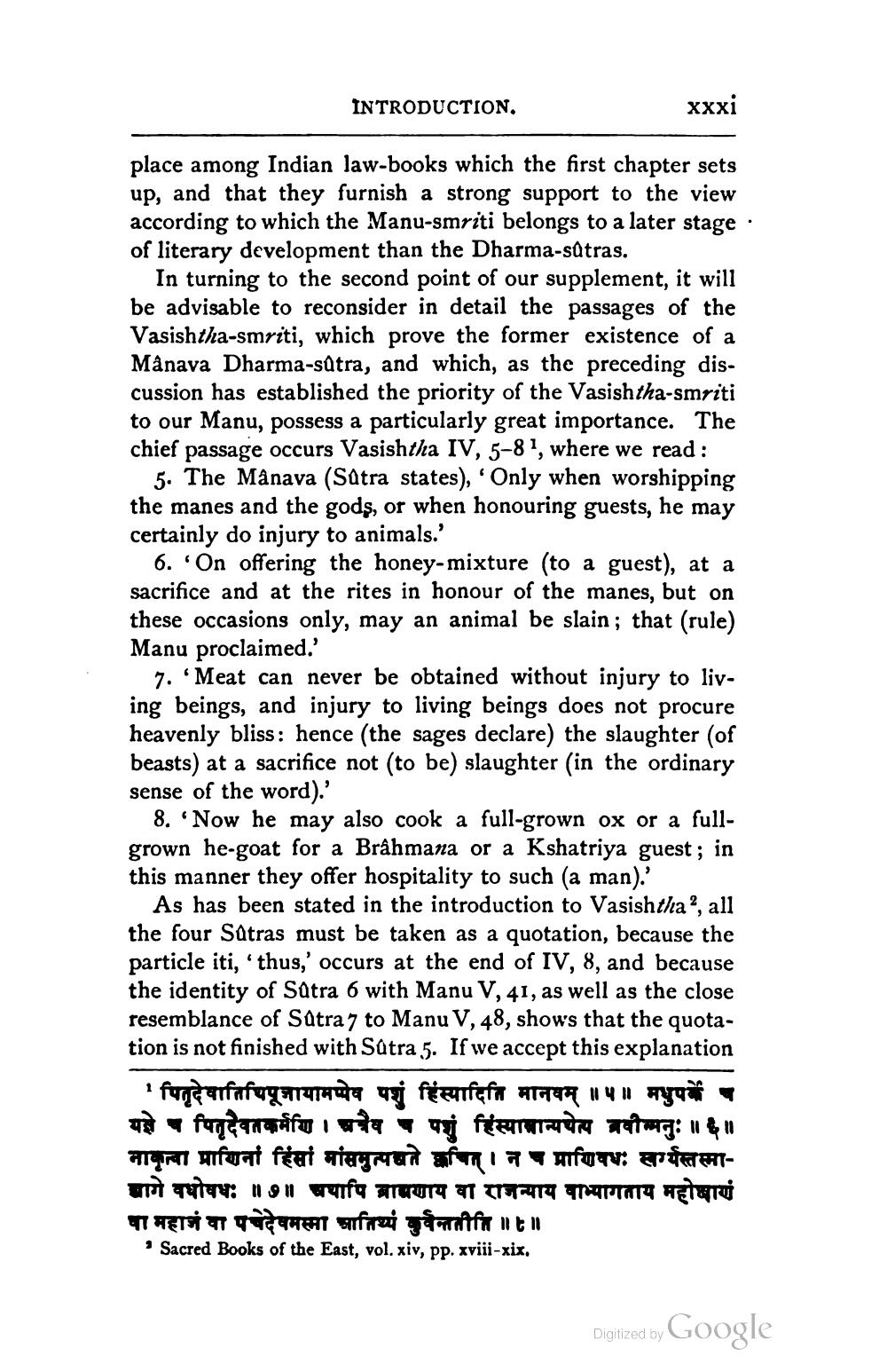________________
INTRODUCTION.
xxxi
place among Indian law-books which the first chapter sets up, and that they furnish a strong support to the view according to which the Manu-smriti belongs to a later stage : of literary development than the Dharma-stras.
In turning to the second point of our supplement, it will be advisable to reconsider in detail the passages of the Vasishtha-smriti, which prove the former existence of a Mânava Dharma-sútra, and which, as the preceding discussion has established the priority of the Vasishtha-smriti to our Manu, possess a particularly great importance. The chief passage occurs Vasishtha IV, 5-81, where we read :
5. The Mânava (Sutra states), 'Only when worshipping the manes and the gods, or when honouring guests, he may certainly do injury to animals.'
6. On offering the honey-mixture (to a guest), at a sacrifice and at the rites in honour of the manes, but on these occasions only, may an animal be slain ; that (rule) Manu proclaimed.'
7. 'Meat can never be obtained without injury to living beings, and injury to living beings does not procure heavenly bliss: hence (the sages declare) the slaughter (of beasts) at a sacrifice not (to be) slaughter in the ordinary sense of the word).'
8. Now he may also cook a full-grown ox or a fullgrown he-goat for a Brâhmana or a Kshatriya guest; in this manner they offer hospitality to such (a man).'
As has been stated in the introduction to Vasishtha?, all the four Satras must be taken as a quotation, because the particle iti, 'thus,' occurs at the end of IV, 8, and because the identity of Satra 6 with Manu V, 41, as well as the close resemblance of Satra 7 to Manu V, 48, shows that the quotation is not finished with Satra 5. If we accept this explanation
'पितृदेवातिपिपूजायामप्पेव पशुं हिंस्यादिति मानवम् ॥५॥ मधुपर्क यज्ञे पितृदेवतकर्मणि । अत्रैव च पशुं हिंस्यानान्यपेय ब्रवीन्मनुः ॥६॥ नाकृत्वा प्राणिनां हिंसा मांसमुत्पद्यते क्वचित् । न च प्राणिः स्वार्यस्तस्माचागे वयोवधः ॥७॥ अथापि बाबणाय वा राजन्याय वाभ्यागताय महोषाणं पा महाजं वा पचेदेवमस्मा आतिथ्यं कुर्वन्ततीति ॥ · Sacred Books of the East, vol. xiv, pp. xviii-xix.
Digitized by Google




